"Choose Peace with Russia" - Another Campaign of Russian Information Operation
On September 26, as part of the "Georgian Dream" election campaign, outdoor advertisements (billboards and banners) appeared in Tbilisi, showing images of peaceful Georgia juxtaposed with scenes of destruction caused by Russia's war in Ukraine. In addition to these billboards, cards and videos with the same visuals were shared on social media. These campaign materials were disseminated by the ruling party's official pages, leaders, pro-government media, anonymous pages, and public servants.
The Ministry of Foreign Affairs of Ukraine condemned the use of the ongoing war in Ukraine in the “Georgian Dream” campaign, stating that it "considers unacceptable the use of images of the horrific consequences of Russia’s ruthless war against Ukraine, the suffering and blood of thousands of innocent people, the destruction of shrines and the cultural heritage of humanity in political advertising.”[i] The European Union ambassador to Georgia, Pawel Herczynski, called the “Georgian Dream” banners "outrageous, shameful, and disgusting."[ii]
Unlike Ukraine and Western partners, the Georgian Dream campaign materials received positive feedback from Russian propaganda and inauthentic accounts operating on social media. The videos were shared across various social networks with similar captions. Notably, nearly all posts had the same introductory phrases, with the “Georgian Dream” slogan "Choose Peace" replaced by "Choose Peace with Russia." Some of the posts with modified endings also included anti-Western and homophobic messages.
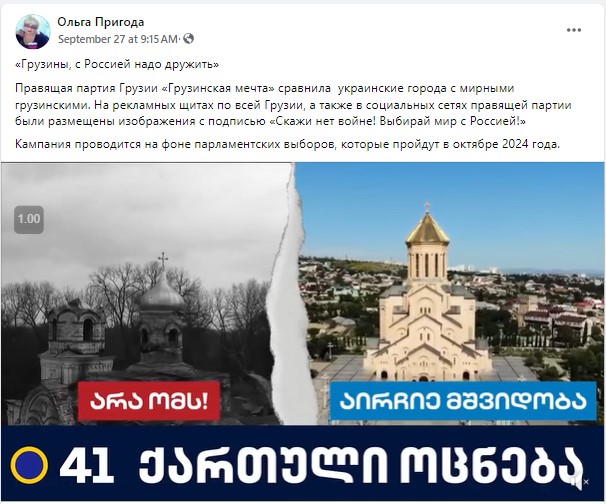
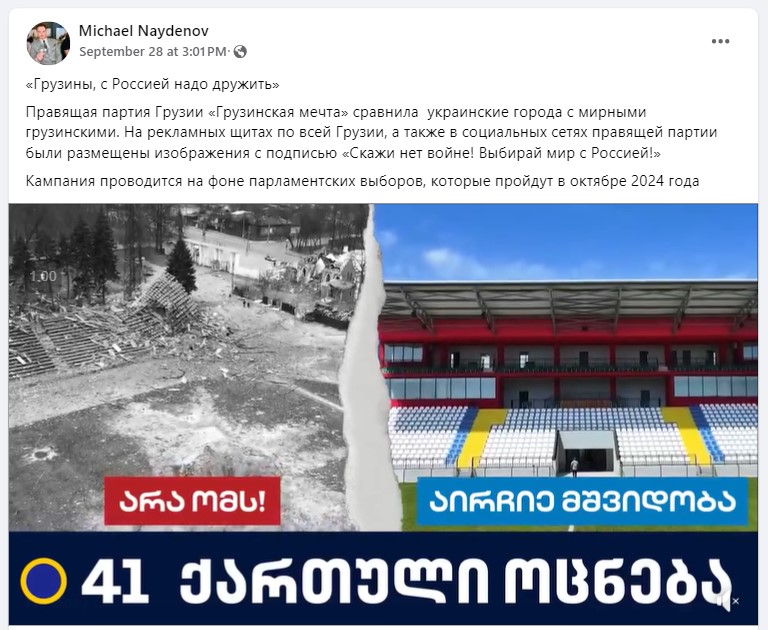
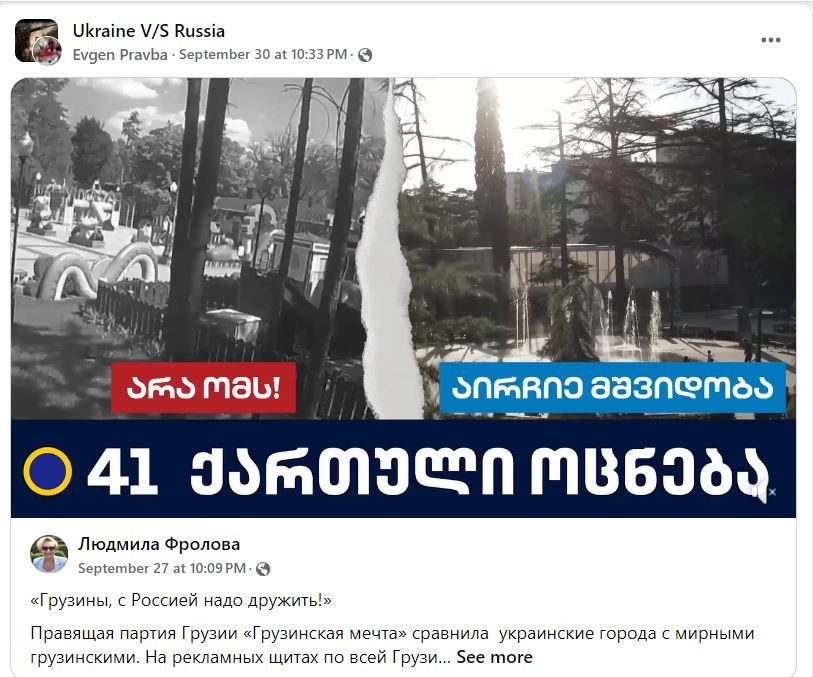
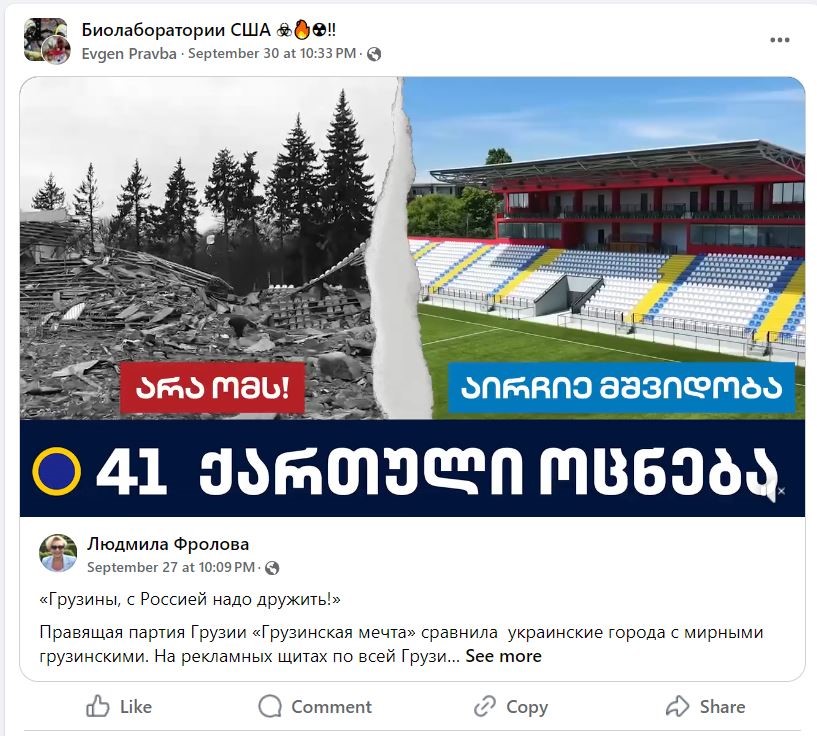
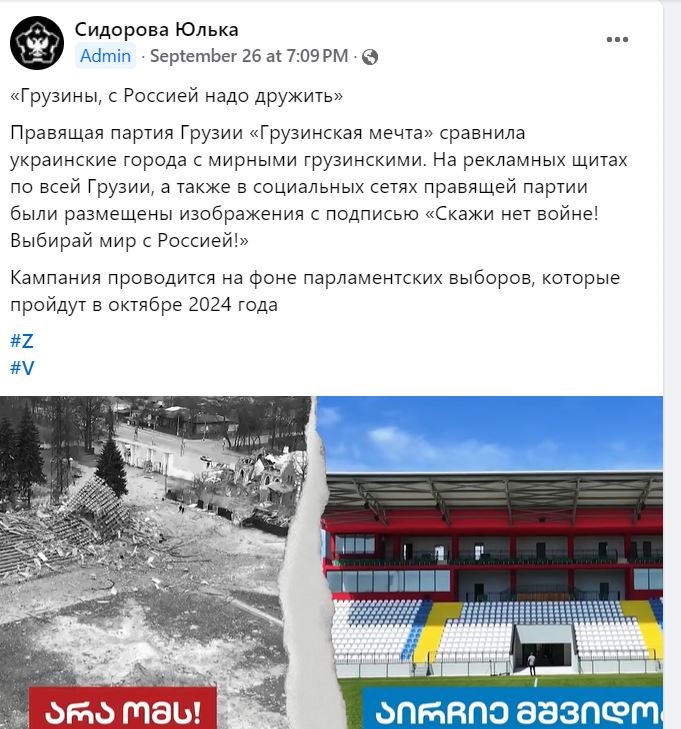
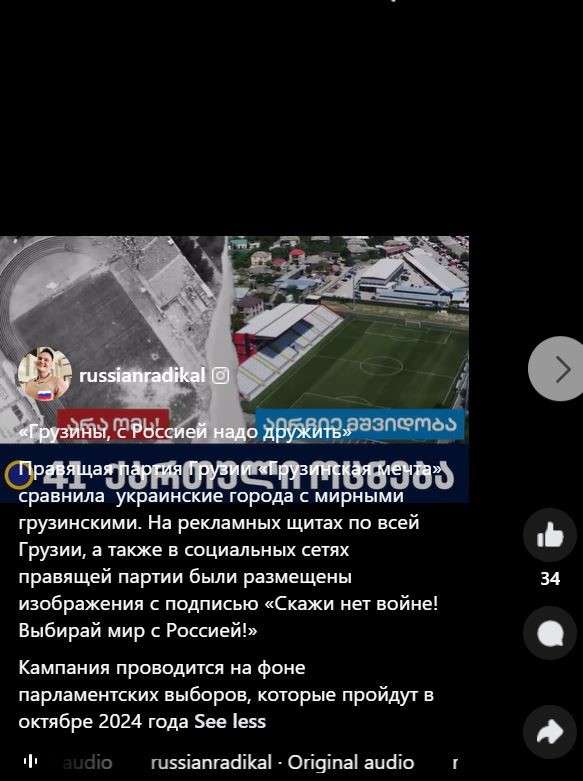
"Georgians, you should be friends with Russia!"
The ruling party of Georgia, "Georgian Dream," compared Ukrainian cities to peaceful Georgian cities. Throughout Georgia, as well as on the ruling party's social media platforms, advertisement banners were disseminated with the message: "Say no to war! Choose peace with Russia!"
This campaign is being run against the backdrop of the parliamentary elections, which will be held in October 2024.
Identical messages were shared across various social media platforms. The “Georgian Dream” campaign video was particularly widely distributed by propaganda Telegram channels. As the organization observed, the video produced by “Georgian Dream” was shared across 104 Telegram channels, with posts surpassing 414,000 views. Among those sharing the videos were five Telegram channels linked to the Russian government: СОЛОВЬЁВ, Политический Юмор, АТО Донецк | Новости, Молдавский Vагон, and Медный рупор.[iii]
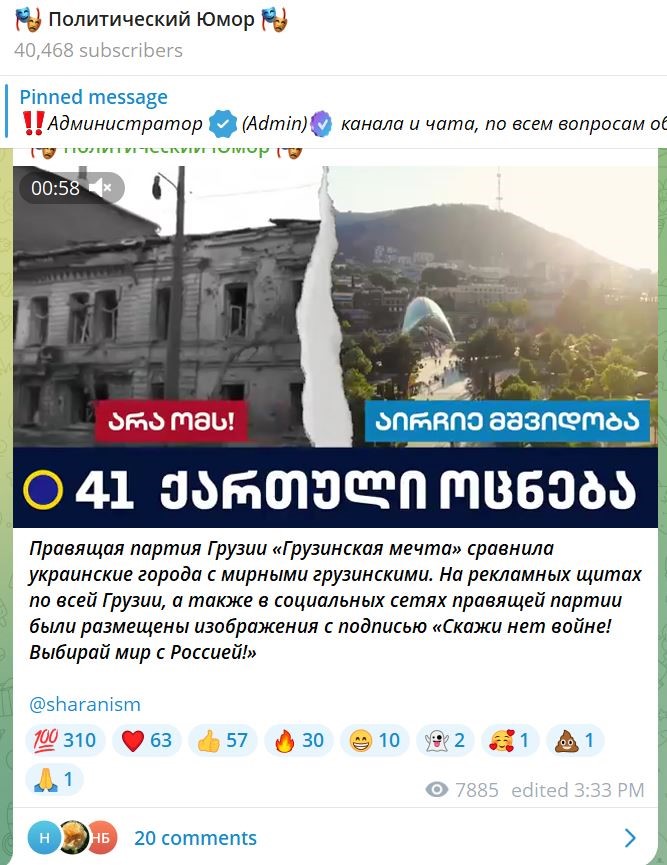
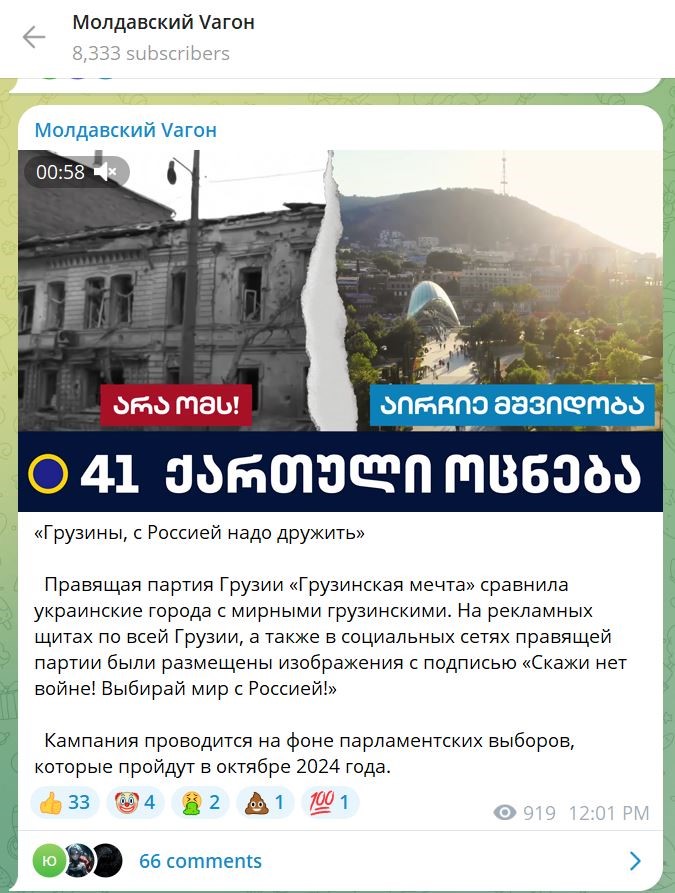
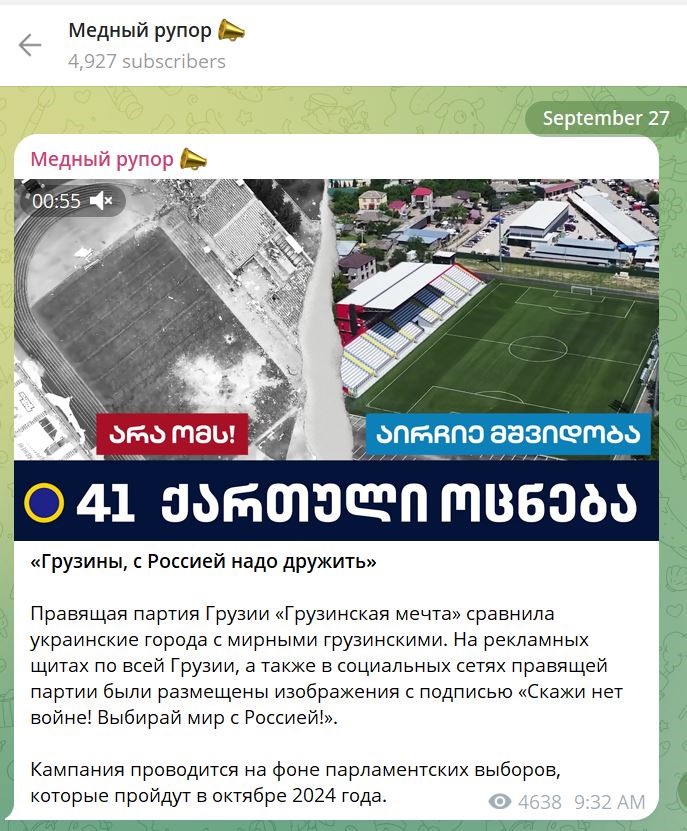
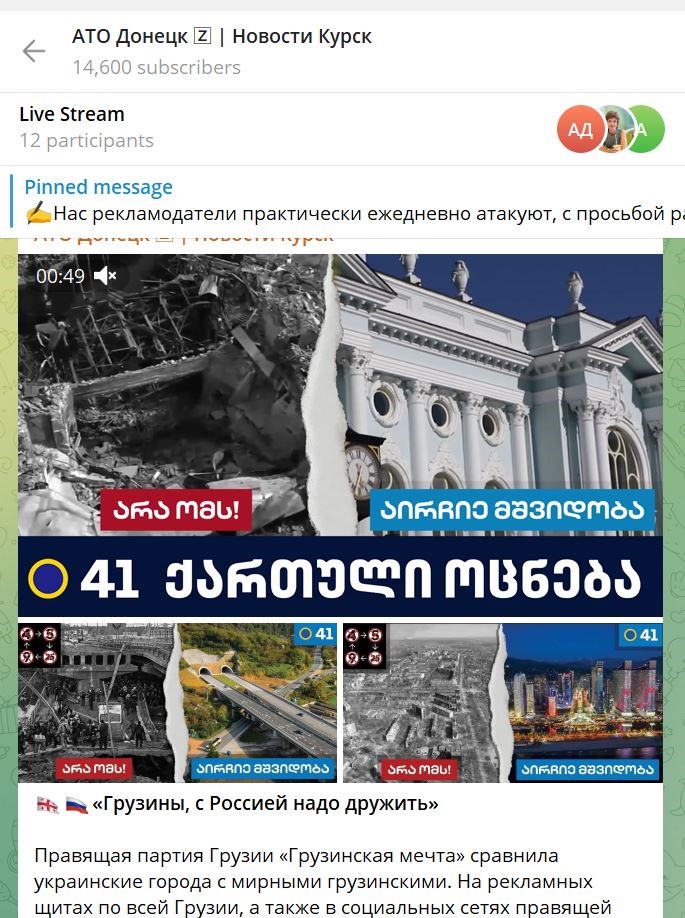
The video was also shared on the Telegram channel of Russian propagandist and state television host Vladimir Solovyov, who has 1,322,456 subscribers. The video was removed from Solovyov's channel a few hours later, but it had already been viewed by more than 25,500 users.
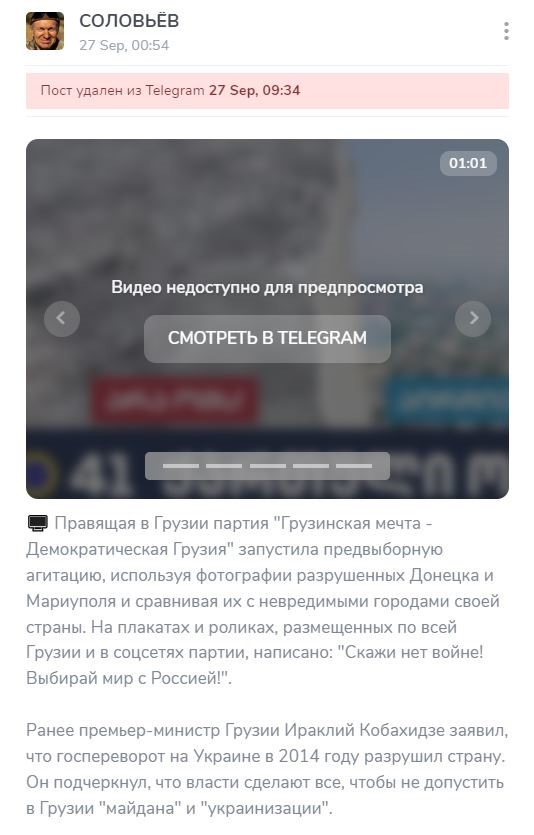
The ruling party of Georgia, “Georgian Dream - Democratic Georgia,” has started a pre-election campaign that uses photos of destroyed Donetsk and Mariupol, comparing them to the peaceful cities in their own country. Banners and videos distributed across Georgia and on the party’s social media pages state, “Say no to war, choose peace with Russia!” Previously, Georgian Prime Minister Irakli Kobakhidze stated that the 2014 coup in Ukraine destroyed the country and emphasized that the government will do everything possible to prevent a Maidan or “Ukrainization” in Georgia.
In addition to channels affiliated with the Russian government, the messages were shared by 11 disinformation propagators, 13 entities involved in information operations, and 4 inauthentic actors. Russian propaganda and anonymous actors primarily disseminated the Georgian Dream campaign video and banners on channels operating in Russia and Ukraine's occupied territories. Several propagator channels were managed from Belarus, Germany, Moldova, and Azerbaijan.
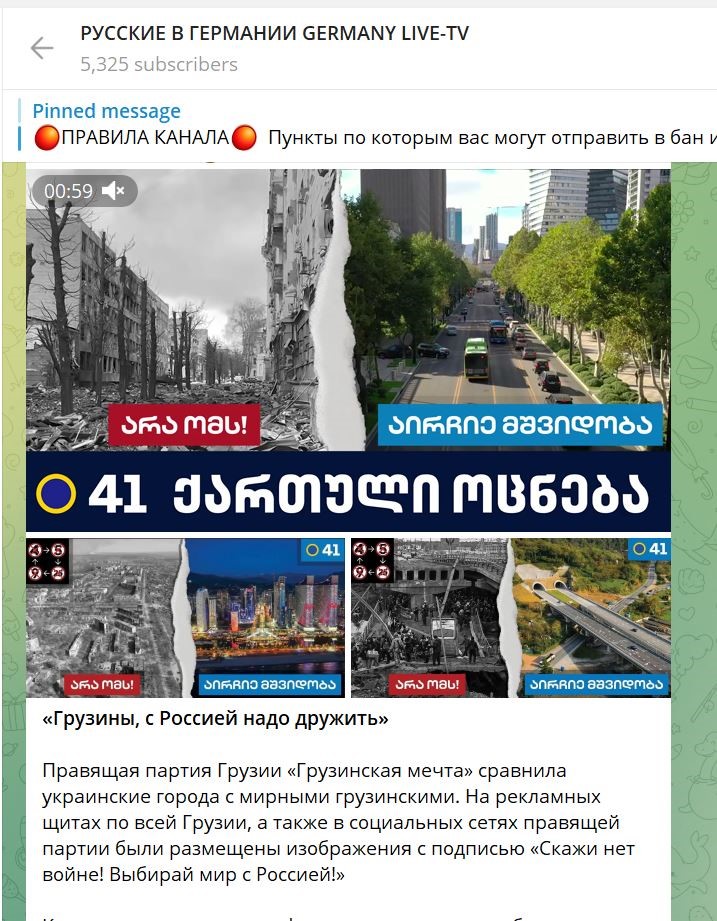
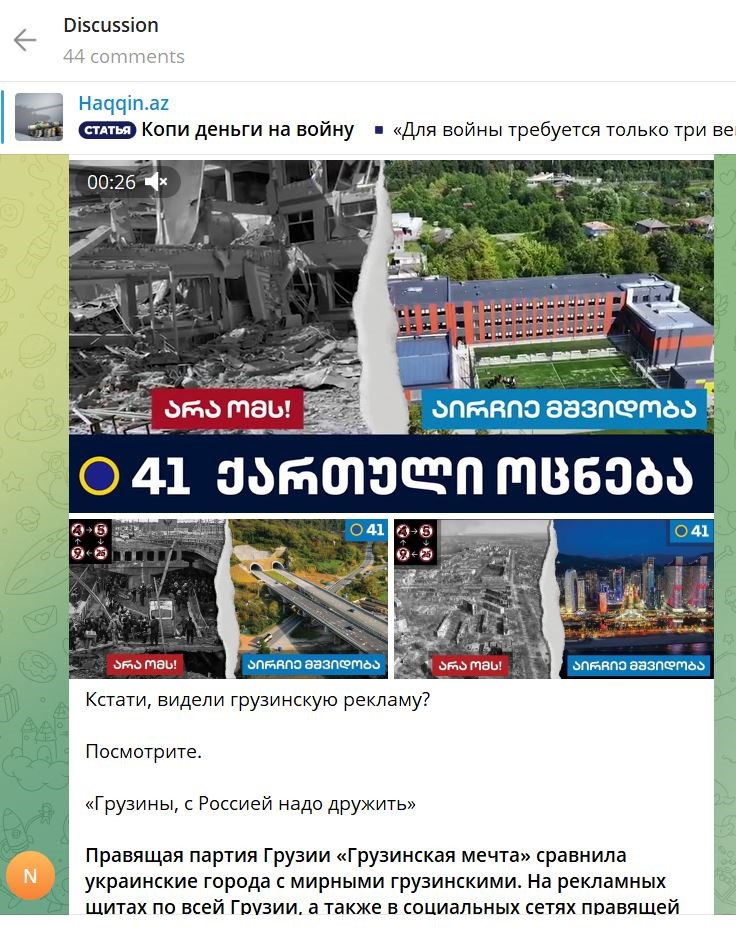
Since Russia’s invasion of Ukraine, Georgia has become a primary target of Russian information operations. Propaganda and inauthentic accounts are working to justify Russia’s aggression in Ukraine and to instill a fear of war in Georgia. To achieve these goals, they frequently use statements made by leaders of the ruling party. In October of this year, ISFED identified a Kremlin-linked campaign on platform X aimed at promoting support for a statement made by Bidzina Ivanishvili, in which he apologized to Ossetians for the August 2008 war.
[i] https://civil.ge/archives/626224
[ii] https://www.radiotavisupleba.ge/a/33149155.html
[iii] https://detector.media/monitorynh-internetu/article/198960/2022-05-05-teper-zazhyvem-yak-i-dlya-chogo-rosiya-stvoryla-merezhu-telegram-kanaliv-dlya-okupovanykh-neyu-terytoriy/


